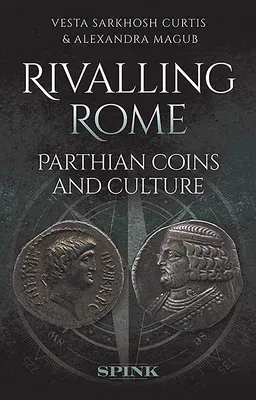One hundred years after the conquest of the Persian Empire by Alexander
of Macedon, we see the emergence of a new Iranian dynasty that, by 140
BC, has extended its rule to Western Iran and Mesopotamia. The Arsacid
Parthians, famous for their riding and archery skills, became Rome's
most dangerous enemy east of the River Euphrates. Encounters between
Roman generals and Parthian envoys are vividly described in Classical
accounts of a biased nature, and unfortunately no such sources are
available from the Parthian side. Here, the most important primary
source is the coinage of the period c. 248 BC - AD 224. These coins
reveal important information about the development of the Parthian
state, its expansion and the role of the king, who, by 111 BC, had
adopted the ancient Persian title of King of Kings. Rome's interference
in the region begins during the reign of Mithradates II's and culminates
in the devastating defeat of the Roman army under the General Crassus at
the Battle of Carrhae in 53 BC. Over the next 300 years these two
superpowers fight for territorial control in the region, particularly
over Mesopotamia and Armenia. This book will highlight the rise to power
of the Parthians, the long conflict with Rome, as well as the culture
and religion of the Parthian Empire as seen through the coinage of this
period. It is co-published with the British Museum to accompany an
exhibition of the same name which opens there in April 2020.

